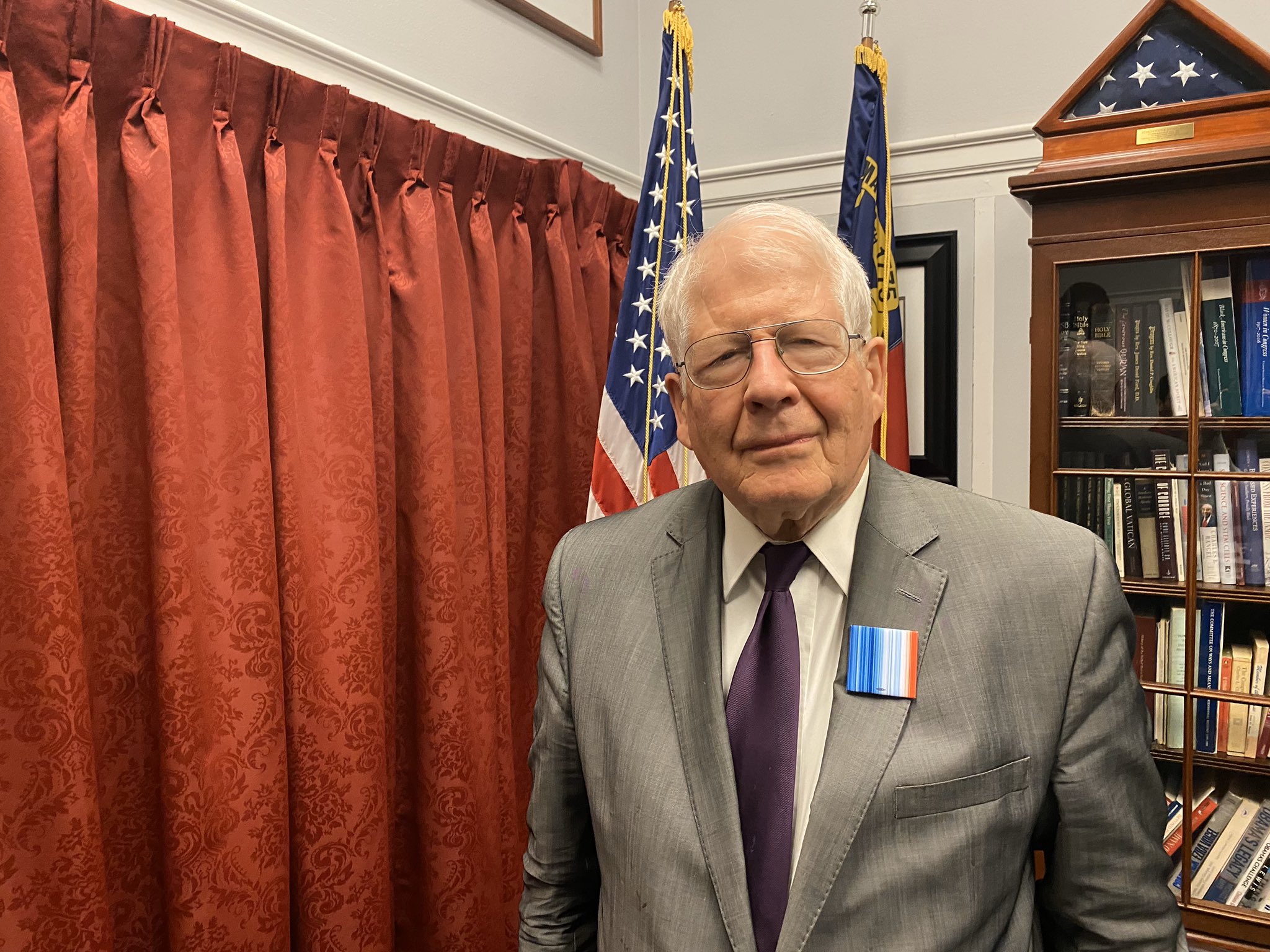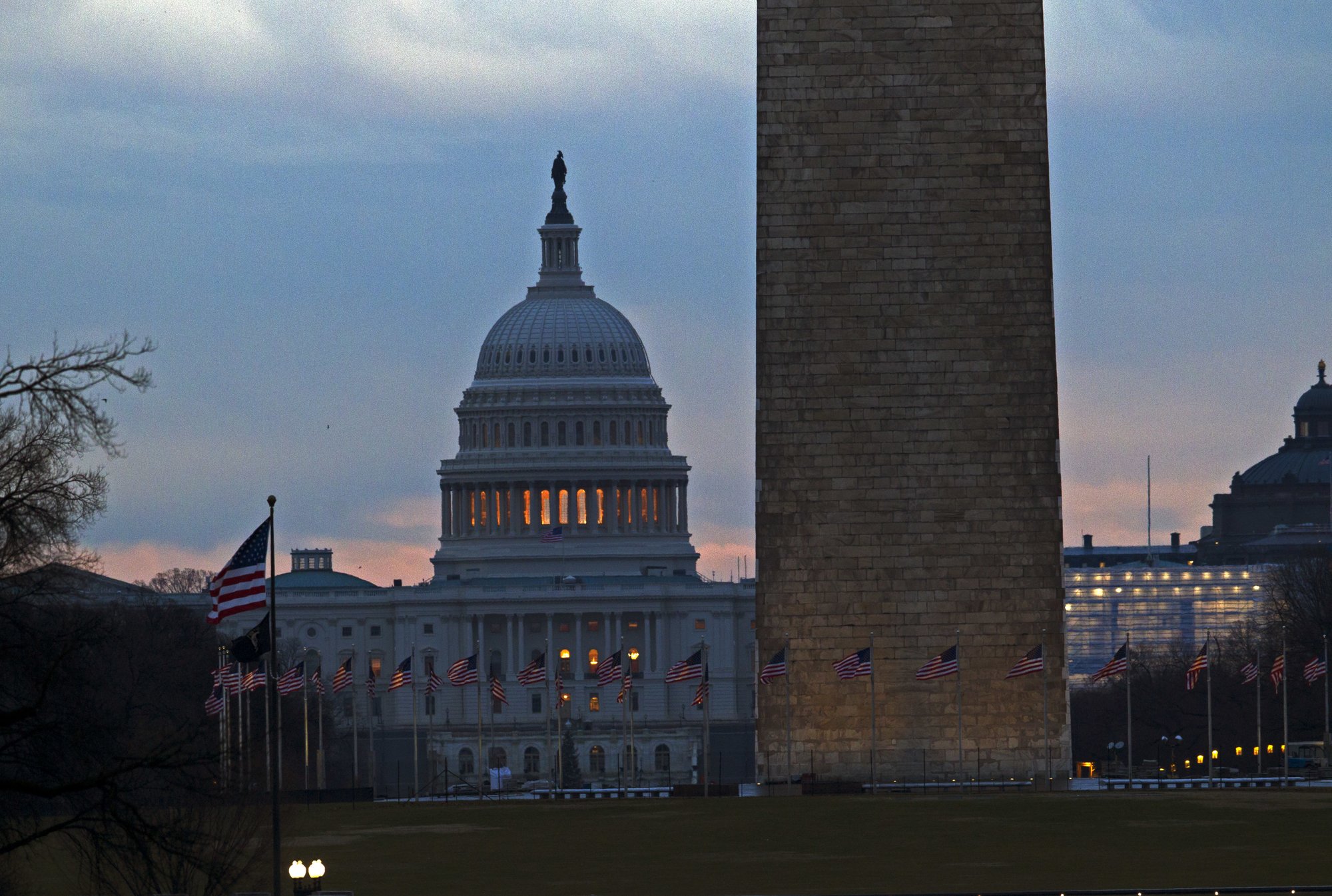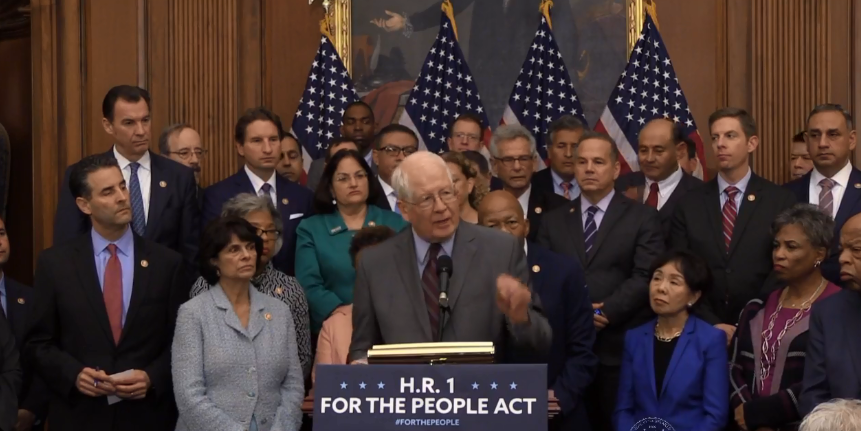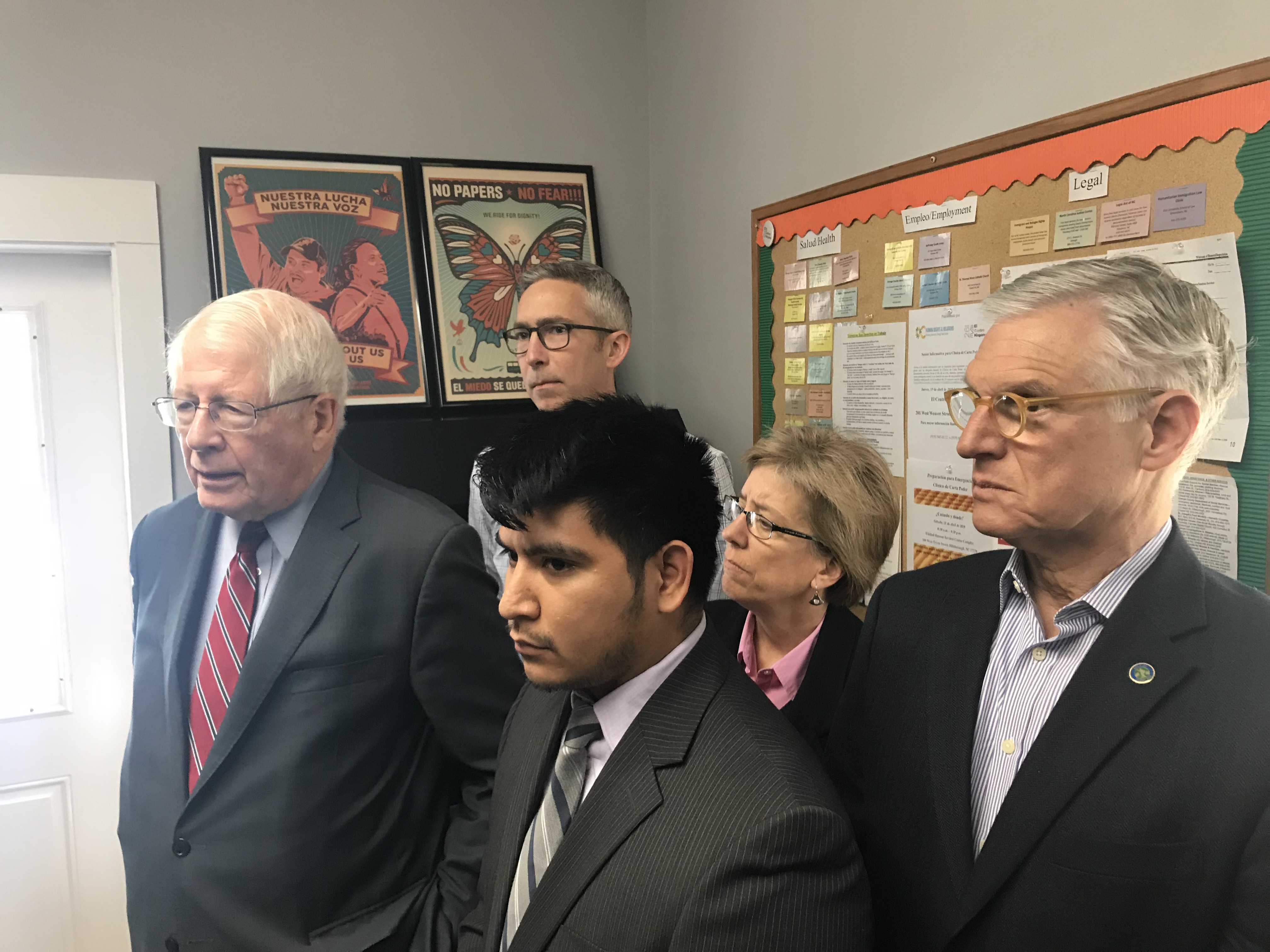Right-leaning media behemoth Sinclair Broadcasting’s proposed $6.6 billion dollar acquisition of Tribune Media could bring higher cable bills and threaten local news reporting, according to opponents of the deal.
Former FCC Commissioner Michael Copps calls the deal the “worst merger ever” and referred to Sinclair in a press call earlier this week as the “most dangerous company most Americans have never heard of.”
“No one company should be allowed to wield the power that would be wielded by a Sinclair-Tribune merger,” said Copps. “It’s bound to involve higher cable bills, and it’s bound to involve fewer local news reporters.”
Opponents of Sinclair Broadcasting accuse the company of peddling conservative extremist views and a far-right leaning agenda through the local television stations that it owns, of which there are currently 173.
The merger would result in Sinclair-Tribune controlling stations that reach 72 percent of U.S. households.
“It’s done this through bending rules and outright breaking rules, and they are dangerously on illegal grounds,” said Copps.
The rule-bending that Copps is referencing is the UHF discount, an antiquated FCC loophole that was reinstated just weeks before the Sinclair-Tribune merger was proposed.
The UHF discount allows media companies to only account for half of the coverage area reach of their stations and was established in 1985 to account for an analog system that is no longer used.
The loophole allows for Sinclair-Tribune to far surpass the ownership cap that states no one company can own stations that collectively reach more than 39 percent of the country.
Congressman David Price (D-NC), who has introduced legislation to permanently end the UHF discount, calls the discount a “gimmick”.
“The UHF discount is of course obsolete,” said Price. “This is a power-grab, a consolidation grab that we really need to pay attention to.”
Sinclair has been accused of forcing local networks to air “must-run” segments that tend to be extremely politically charged, including questioning Senator John Kerry’s Vietnam War record and accusing President Obama of being a socialist that received funding from Hamas.
Price is calling for bipartisan cooperation to snuff out the UHF discount and, in turn, stop the merger.
“Corporate consolidation of the media isn’t a problem for just Democrats or Republicans; it’s a problem for anyone who wants to receive programming from a local broadcaster that isn’t a captive to some far-off corporate headquarters or to a political agenda,” said Price.
Price’s Local and Independent Television Protective Act was introduced in the House in late July.
Related Stories
‹

'Time to Pass the Baton': Congressman David Price Won't Seek Reelection After 2022 TermAfter more than 30 years in office, longtime Orange County Congressman David Price announced his retirement last week. He said he would not seek re-election following the conclusion of his term in 2022.

Congressman David Price to Join Joe Biden for Drive-in Event in RaleighU.S. Representative David Price, the congressman for North Carolina’s 4th District, is set to join Democratic presidential candidate Joe Biden for a campaign event in Raleigh on Monday. Price, who has represented the district that holds all of Orange County, Raleigh and Cary since 1997, is one of several Democratic officials speaking at the event […]
![]()
Filing Period Has Ended for 2020 Primaries: Who's Running?Filing period for the March 2020 primaries closed Friday at noon after being open since the first week of December. Races for the Board of Orange County Commissioners and a seat on the county’s district court will be contested going into the primaries, while the state-wide races saw fewer candidates file to compete in primaries. […]

Rep. David Price Plans to Support Articles of Impeachment Against TrumpThe House Judiciary Committee approved two articles of impeachment against President Donald Trump on Friday morning, meaning a vote on the articles in the full House of Representatives will soon be held. The decision came after a week of deliberation over whether enough evidence existed to draft and approve the articles. The abuse of power charge […]

Rep. Price Supports Impeachment Inquiry, Describes Trump as 'Indefensible'The U.S. House of Representatives passed a resolution on Thursday to establish a framework for proceedings in the ongoing impeachment inquiry of President Donald Trump. The resolution was approved by a 232 to 196, with representatives voting along party lines with the exception of two Democratic lawmakers, who voted against the measure. Former Republican representative Justin […]
![]()
Governor Cooper Speaks on Climate Change Before CongressThe U.S. House Natural Resources Committee put climate change on the agenda Wednesday by inviting Governor Roy Cooper to Washington to talk about what North Carolina is doing to address climate change. Committee hearings on climate change in the House and Senate this week marked the first time in many years congressional committees are taking […]

Price Among House Democratic Leaders on Ethics, Elections Reform BillSpeaker Nancy Pelosi and Democratic Party representatives unveiled a bill Friday outlining their top legislative priorities for the coming term in the U.S. House of Representatives. H.R. 1, or the For the People Act, is the first piece of legislation out of the new Democratic majority in the House, and covers a wide set of […]
![]()
Duke Professor Article: False News Stories More Likely to Be Shared OnlineFake news and the spreading of misinformation have existed as long as journalism itself. Throughout American history, the most common remedy to combat dissemination of lies has been what professor of Public Policy at Duke Philip Napoli calls “counter speech.” “Counter speech is the idea that the truth is inherently capable of winning out over […]

UNC Dean of Media and Journalism Responds to Viral Sinclair Broadcasting VideoA video montage posted online by Deadspin that shows anchors across the US all reading the same promo script went viral last month following a report by CNN’s Brian Stelter stating that Sinclair Broadcasting Group would be requiring all of its 173 local news stations to air the promo. The promo anchors read states that […]

NC Congressman and Local Officials Join El Centro to Speak on Recent ICE ArrestsFear struck several immigrant communities around the Triangle when federal Immigration and Customs Enforcement agents arrested more than a dozen individual in Orange and Chatham counties earlier this month. Local non-profit El Centro Hispano is leading the movement in supporting those affected by the raids and held a press conference on Friday where North Carolina’s […]
›







